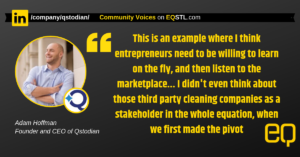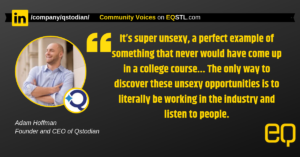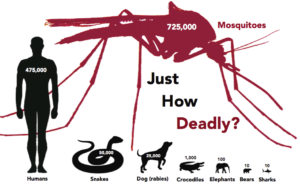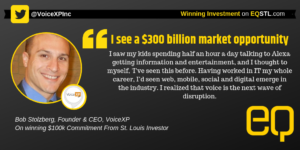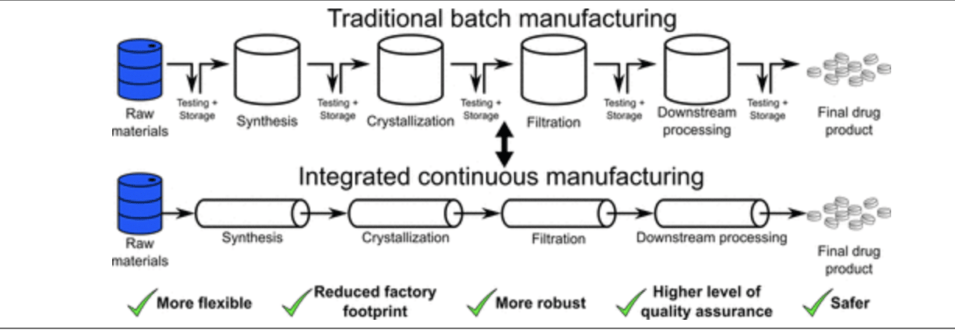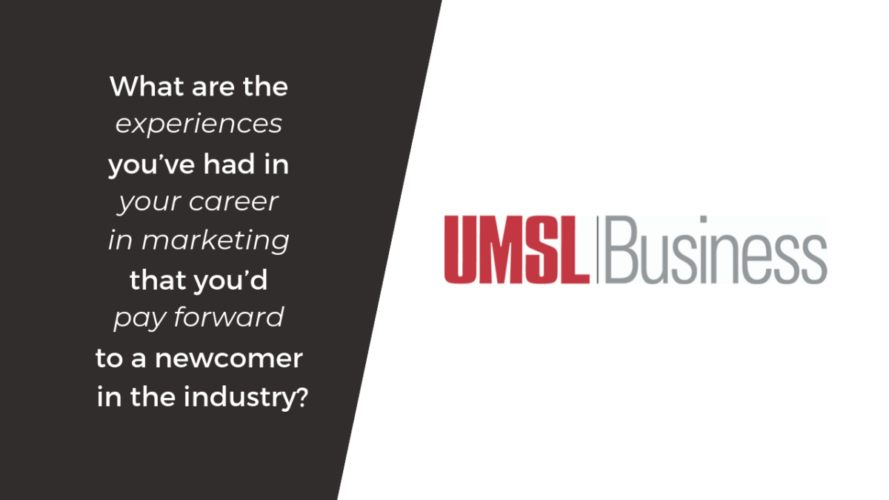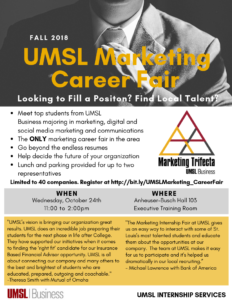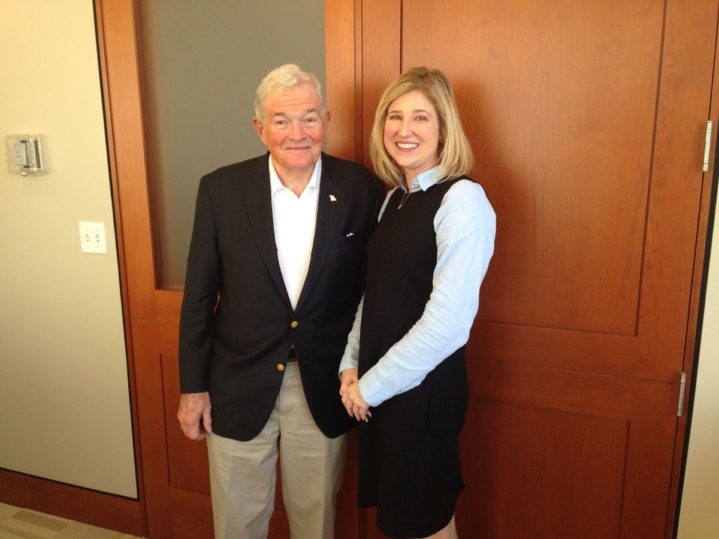
Disrupting Research Policy with Kendra Perry
 Kendra Perry has a background in politics which comes in handy when she helps people like nanoscientists (scientist that studies really small materials) collaborate outside their lab. She’s currently the Director of Government & Business Relations at the Center for Nanoscience (CNS) at the University of Missouri-St. Louis, a leading institution in the field, where she founded the St. Louis Institute of Nanoscience and Nanomedicine (SLINN) symposium.
Kendra Perry has a background in politics which comes in handy when she helps people like nanoscientists (scientist that studies really small materials) collaborate outside their lab. She’s currently the Director of Government & Business Relations at the Center for Nanoscience (CNS) at the University of Missouri-St. Louis, a leading institution in the field, where she founded the St. Louis Institute of Nanoscience and Nanomedicine (SLINN) symposium.
Are you a nanoscience expert? Do you have to be?
No, I’m not an expert. I am very willing to learn and study. What I bring, I think, is a willingness to learn, excitement for the field and a business viewpoint.
What do you do as a Director of Government & Business Relations?
I spend a lot of time visiting companies and attending events, exploring where our center can be of assistance to companies and others. When there’s synergy, I develop and eventually coordinate the collaborative effort that emerges. I also help to educate our legislative community on what research is being done at my center and how that research translates to economic development.
What’s the biggest untapped potential you see today?
The startup community and corporations sometimes don’t realize that universities want to collaborate and have the research expertise that they may need for a specific project.
How you would describe your POV on the world?
I’m pretty optimistic and easygoing. I believe that people are inherently good. I’m not a very cynical person.
You specialize in policy, with a background in politics – how do the two relate?
Policy is just the concrete product that comes out of the back and forth, arguing, fluidity and compromise that is politics. Policy is what emerges that sets the template for going forward.
What’s the value of a collaboration like SLINN beyond what the individual institutions already have?
Finding collaborations outside of a researcher’s department or institution can be challenging, especially with the entrepreneurs, investors and business people they’ll need to succeed. SLINN helps bring the right people together to foster these much needed collaborations.
Tell us about the picture you sent for use with this story—what’s interesting to you about it?
It’s me and Senator Bond, he’s the keynote speaker for SLINN 2015. He’s been a champion of science and technology for many, many years.
Beyond education and training, what prepared you for what you’re doing now?
Working in politics means learning how to be diplomatic for the act of moving something forward that you believe in. When politics works, you’re engaging people differently than before, and hopefully bringing people together that wouldn’t normally collaborate.
If time and money were not a factor, what would you spend your time doing?
Traveling. I would visit CERN [The European Organization for Nuclear Research]—it’s an incredible collaboration. Several countries bringing all sorts of scientists and industry people together in one really major research project.
What’s something you just learned about that you’d like to spend more time exploring?
I started teaching myself Swedish last year. I don’t know why. I do absolutely nothing with it, it’s just a form of entertainment for me. I also started playing golf last year and I’m terrible, but I love it.
When you’re gone, what do you hope your contribution will have been?
When I was in college, I wanted to take a military strategy class. My counselor asked if I wanted to take it because my boyfriend was in the class. He wouldn’t sign off on me taking the class. It was offensive and it still makes me mad. I hope I’ll have helped some young women get their start in science and technology.
Are you reading anything interesting?
I’m reading a lot of Nabokov lately. I find it really interesting that his books concern sordid subjects around relationships, but in his own life he had an incredible love affair with his wife and they were together until death.
What keeps you up at night?
Besides my Great Dane Minnie, it’s the lists of things that I need to do for SLINN.
Favorite guilty pleasure?
I like HBO series like “Homeland”. I’m impatient and don’t like waiting between episodes, so binge watching works best for me. I watched all eight seasons of “Game of Thrones” in a month.
What productivity tools can you not live without?
A notebook is always with me. Physically writing on paper with a pen converts the ideas to my memory better than typing. It’s why I prefer paper books to e-books. My iPad is my backup.
What do you struggle with the most?
Proving myself because I don’t have a scientific background. Even with 10 years at this, I struggle. I don’t have a PhD, and I sometimes feel like the researchers with the PhD’s and other credentials are holding it against me, whether they are or not. It just makes me work harder—study and prepare as much as possible about each subject I talk to people about. It helps me translate research to everyone else, and that matters.
How can people follow you or connect with you?
They can get my contact info on the CNS page, find me on LinkedIn or go to the SLINN website.

